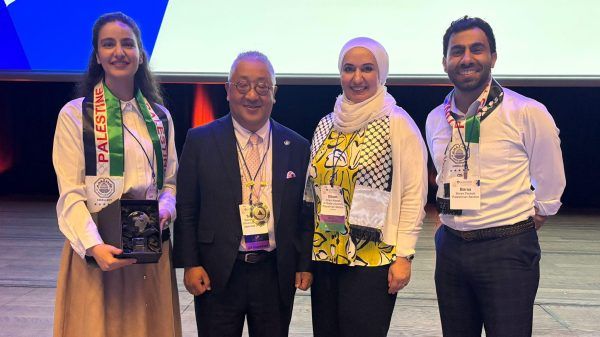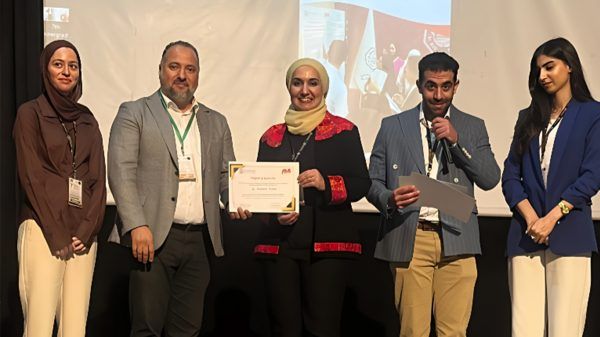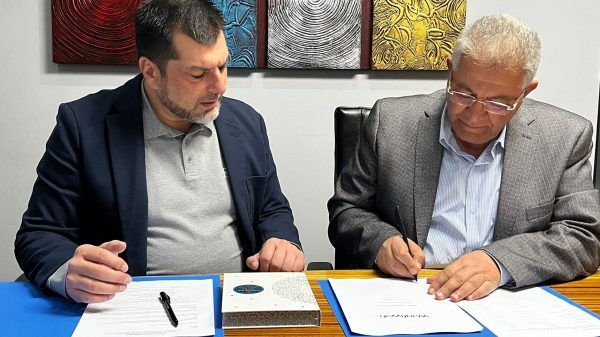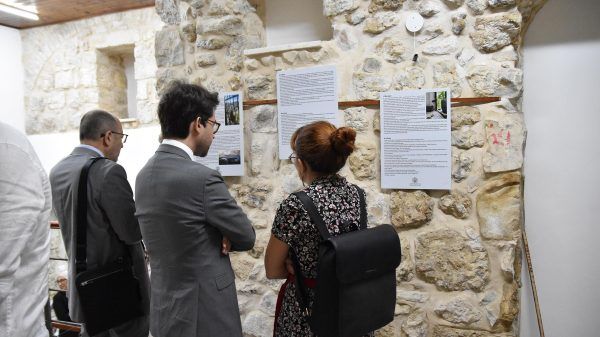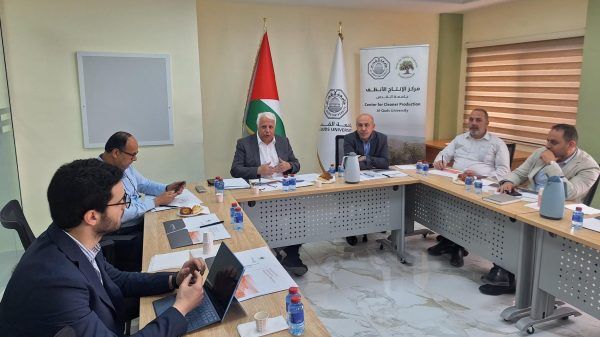A memorandum of understanding was signed between Al-Quds University represented by its president, Professor Imad Abu Kishek, and the Anti-corruption commission represented by its president, Mr. Rafiq Al-Natsheh, in the presence of the vice presidents, a number of academic staff members and some people of the anti – corruption staff.
This agreement demonstrates the cooperation towards joint plans between the two parties, in particularly, in carrying out all the activities related to the National Anti- corruption Strategy. This cooperation includes developing jointly courses on transparency and honesty, organizing competitions and common legal programs targeting the Palestinian public.
President Professor Abu Kishek welcomed all the attendees and declared that this agreement is considered a base to real partnership and exchange of valuable experience. He expressed his appreciation towards the role the commission plays in the embodiment of concepts such as: integrity, transparency, and accountability.
In addition, Professor Abu Kishek underlined the importance of this agreement especially because it began at al-Quds University in Jerusalem and will be implemented and achieved into reality. It will then be circulated to other Palestinians universities.
From his side, Mr Rafiq Al-Natsheh expressed his delight in signing this agreement with Al-Quds University. He mentioned that it’s not the first time that the commissions have worked with the university; there are several events and activities that have been carried out during the last years. Mr. Al-Natsheh also added that the participation of academic staff from the different disciplines is a necessity in order to formulate policies for any country. With this, educational institutions complement each other in the roles that they play in supporting the Commission’s role in spreading the concepts of fairness, integrity and transparency. Said Mr . Al -Natsheh .
“This Commission doesn’t represent any party or a certain faction. It’s a commission which came to existence by the totalitarian law which is responsible for accountability of all the segments of the Palestinian society,” Al-Natsheh stated.
A roundtable was convened to discuss "the legal framework for criminal procedures of the Anti-corruption Commission" which included certain procedures used to treat complaints and reports related to suspected corruption by the Supreme Court, the prosecution, and the commission.
Miss Rasha Amarneh presented a paper titled “The legal framework concerning the role of criminal procedures which organized the work of the anti-corruption commission.” This paper included the interpretation of the law related to the crime of corruption, the persons subject to the provisions of the law, in addition to other terms of reference and responsibilities. She also displayed the procedure that the commission follows in treating the complaints and reports. Moreover, in her paper, Miss Amarneh discussed the disclosure of suspected crime of corruption, legal protection of individuals and jobs, the witnesses and informants, as well as the penalties which are imposed by the anti-corruption law and the execution of law.
The prosecutor of the anti–corruption commission, Mr Yasser Sawafta explained the role of assigned prosecutors, which works under the umbrella of the anti–corruption commission. Its role resides in investigating suspicions of corruption, using efforts, and collecting inferences /clues to transmit to the competent court in anti-corruption.
Mr Sawafta clarified that, the assigned prosecutors is responsible of all the legal , criminal and examination/investigation procedure, including hearing witnesses and statement before sending any case to the competent court.
While Miss Ruba Al-Tawell,. who works in the supreme judicial, presented a paper discussed the judicial procedure of the corruption crime court , which includes the record of actions and the obstacles confronting the courts, like the routine matters, when there’s no assignment of judges especially in the anti-corruption court.
She went saying that “the absence of witnesses is a reason which imbeds the function of courts and prolongs their duration, as the appeals”. Others delayed because of not implementing the memorandum of habeas corpus.



